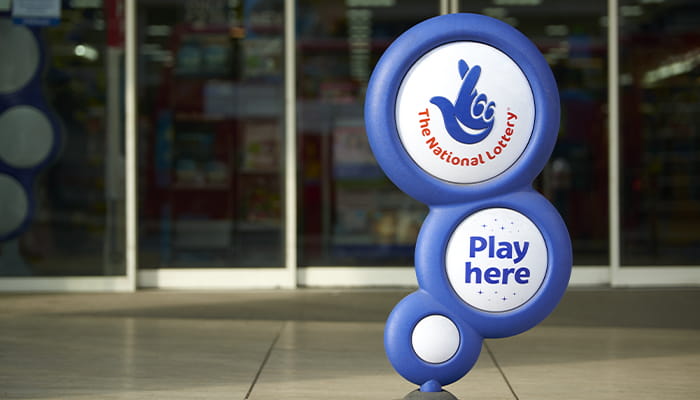IGT’s Unyielding Fight Against Allwyn
 The High Court in England and Wales rejected IGT’s most recent legal defense, which accused the regulator of violating human rights and claimed damages of £600 million ($713.52 million) because of the lottery’s revenue. The case was dismissed and IGT lost its chance to seek restitution after the court decided that IGT lacked the legal standing to contest the UKGC‘s judgment.
The High Court in England and Wales rejected IGT’s most recent legal defense, which accused the regulator of violating human rights and claimed damages of £600 million ($713.52 million) because of the lottery’s revenue. The case was dismissed and IGT lost its chance to seek restitution after the court decided that IGT lacked the legal standing to contest the UKGC‘s judgment.
Tenacity and tenacity have been characteristics of the legal conflict between IGT and the UK National Lottery. Both Camelot UK and IGT filed an appeal after the UKGC chose Allwyn as the fourth licensee of the National Lottery in September 2021. IGT, as Camelot’s technology partner, persisted in its struggle to maintain its involvement in the National Lottery whereas Camelot later withdrew from the court action.
IGT’s Legal Battle Against UK National Lottery Ended in Dismissal
The first claims against the UKGC were abandoned in September 2022, and Camelot withdrew its claim. But IGT persisted, filing a lawsuit in January 2023 to challenge the Gaming Commission’s decision. The business changed its strategy, accusing the regulator of violating human rights and claiming that the lottery’s revenue had cost IGT as much as £600 million.
However, the High Court of England and Wales rejected IGT’s most recent legal action, hampering its prospects of obtaining a favorable verdict in its favor. The complaint was dismissed by the court because it was determined that IGT lacked the legal standing to sue the UKGC.
UKGC Promises to Be Fair
The UKGC reiterated its commitment to ensuring fair play in the tender process notwithstanding the loss for IGT. The regulator meticulously followed all legal requirements as it diligently investigated the licensees. The UKGC asserted that it had created a balanced environment for the National Lottery by giving the regulator the power to choose a qualified operator and protecting consumer interests.
The process of granting Allwyn the National Lottery license was not without controversy and difficulties. The appointment of Allwyn as the fourth licensee was contested by IGT and Camelot, putting the UKGC through a number of court challenges. With the High Court’s decision, IGT’s legal battle is officially over, but there is still a legal dispute involving The New Lottery Company (TNLC), an organization founded by millionaire Richard Desmond to contend for the license. Additionally, TNLC has contested the choice to grant Allwyn the National Lottery license.
The National Lottery will be run by Allwyn for ten years starting in February of next year, thus ending Camelot UK’s reign as the lottery operator. By acquiring Camelot Lottery Systems, Allwyn was able to satisfy all the legal and regulatory requirements and take over management of the lottery. Even though IGT lost its legal struggle, the National Lottery’s future under Allwyn’s leadership promises to be an exciting and revolutionary time for the UK lottery industry.
To sum up, IGT’s hopes of securing a favorable ruling in its favor were dashed when the High Court of England and Wales rejected its latest legal attack. The court concluded that IGT lacked the necessary standing to take legal action against the UKGC, leading to the dismissal of the case.
 By Jessica Whitehouse,
By Jessica Whitehouse,

 Notre Dame Men’s Swimming Suspended Over Gambling Allegations
Notre Dame Men’s Swimming Suspended Over Gambling Allegations Two Full Casino Resorts Open By Year’s End in Virginia
Two Full Casino Resorts Open By Year’s End in Virginia High Bettor Turnout for Summer Olympics
High Bettor Turnout for Summer Olympics Sports Betting Slowdown Waits for Jump From NFL
Sports Betting Slowdown Waits for Jump From NFL US Federal Gambling Excise Tax on the Chopping Block
US Federal Gambling Excise Tax on the Chopping Block New Jersey DGE Fines Caesars Sportsbook
New Jersey DGE Fines Caesars Sportsbook MGM Prepared to Do Anything to Acquire Entain
MGM Prepared to Do Anything to Acquire Entain Caesars Reveals Plans to Open a Temporary Casino by July Next Year
Caesars Reveals Plans to Open a Temporary Casino by July Next Year Seminole Tribe of Florida Files Replies in the United States Court of Appeals for the District of Columbia
Seminole Tribe of Florida Files Replies in the United States Court of Appeals for the District of Columbia Hollywood Casino Riverboats to Be Moved Inland
Hollywood Casino Riverboats to Be Moved Inland